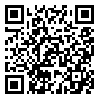1. Nikparast A, Razavi M, Sohouli MH, Hekmatdoost A, Dehghan P, Tohidi M, et al. The association between dietary intake of branched-chain amino acids and the odds of nonalcoholic fatty liver disease among overweight and obese children and adolescents. J Diabetes Metab Disord. 2024;24(1):19. [
DOI]
2. Melo APC, Teixeira HMP, Coelho RS, Silva HDS, Silva RR, Alcantara-Neves NM, et al. Genome-wide association study on overweight in Brazilian children with asthma: old stories and new discoveries. Gene. 2025;941:149219. [
DOI]
3. World Health Organization. Obesity and overweight [Internet]. 2025. [
Article]
4. Rezaei Niasar A, Moradi A, Sadeghi M, Mahmoudi M, Lohrasbi S. The effect of increasing BMI on reaction time, sustained attention and working memory in children and adolescents. Journal of Applied Psychological Research. 2021;12(2):123–38. [Persian] [
Article]
5. Taner S, Gezici E, Unal A, Tolunay O. The association of obesity and hyperuricemia with ambulatory blood pressure in children. Pediatr Nephrol. 2025;40(3):787–96. [
DOI]
6. Liu T, Yang X, Wu Y, Chen M, Yang Y, Chen Y, et al. Unhealthy dietary patterns increased risks of incident obesity: a prospective cohort study in southwest China. Diabetes Metab Syndr Obes. 2022;15:3111–20. [
DOI]
7. Malmir H, Mahdavi FS, Ejtahed HS, Kazemian E, Chaharrahi A, Mohammadian Khonsari N, et al. Junk food consumption and psychological distress in children and adolescents: a systematic review and meta-analysis. Nutr Neurosci. 2023;26(9):807–27. [
DOI]
8. Jenner K. Bans on junk food advertising are a vital move to protect our children's health. BMJ. 2024;387:q2783. [
DOI]
9. Théodore FL, Lozada‐Tequeanes AL, Alvarado R, Kim‐Herrera EY, García‐Guerra A, Rodríguez‐Ramírez S, et al. Exploring barriers and facilitators to feeding children with minimal or no "Junk Food": insights from Mexican women. Public Health Nurs. 2025;42(1):23–32. [
DOI]
10. Large JF, Madigan C, Pradeilles R, Markey O, Boxer B, Rousham EK. Impact of unhealthy food and beverage consumption on children's risk of dental caries: a systematic review. Nutr Rev. 2024;82(11):1539–55. [
DOI]
11. Kraemer MVDS, Fernandes AC, Chaddad MCC, Uggioni PL, Rodrigues VM, Bernardo GL, et al. Food additives in childhood: a review on consumption and health consequences. Public Health Rev. 2022;56:32. [
DOI]
12. Khazdouz M, Safarzadeh R, Hejrani B, Hasani M, Mahdavi FS, Ejtahed HS, et al. The association between junk foods consumption and attention deficit hyperactivity disorder in children and adolescents: a systematic review and meta-analysis of observational studies. Eur Child Adolesc Psychiatry. 2025;34(3):825–34. [
DOI]
13. Chen C, Chen Y, Zhang Y, Sun W, Jiang Y, Song Y, et al. Association between dietary patterns and precocious puberty in children: a population-based study. Int J Endocrinol. 2018;2018:1–7. [
DOI]
14. Malczyk Ż, Pasztak-Opiłka A, Zachurzok A. different eating habits are observed in overweight and obese children than in normal-weight peers. Children. 2024;11(7):834. [
DOI]
15. Potvin Kent M, Pritchard M, Mulligan C, Remedios L. Normalizing junk food: the frequency and reach of posts related to food and beverage brands on social media. PLOS Digit Health. 2024;3(10):e0000630. [
DOI]
16. Andrie EK, Melissourgou M, Gryparis A, Vlachopapadopoulou E, Michalacos S, Renouf A, et al. Psychosocial factors and obesity in adolescence: a case-control Study. Children. 2021;8(4):308. [
DOI]
17. Russell CG, Russell A. A biopsychosocial approach to processes and pathways in the development of overweight and obesity in childhood: Insights from developmental theory and research. Obes Rev. 2019;20(5):725–49. [
DOI]
18. Etkin RG, Winograd SM, Calhoun AJ, Silverman WK, Lebowitz ER, Shapiro ED. Pilot study of a parent-based intervention for functional somatic symptoms in children. J Pediatr Psychol. 2024;49(12):900–10. [
DOI]
19. Song D, Lyu J, Lin W, Pan Y, Ho KY, Zhou X, et al. Factors influencing the physical activity among pediatric cancer survivors based on the parent-based expansion of the theory of planned behavior. J Cancer Surviv. 2024. [
DOI]
20. Ip BYT, Lee SL, Li SX. Telehealth-delivered parent-based sleep-focused intervention for insomnia in preschool children with autism spectrum disorder: a randomized controlled study. Autism. 2024;28(11):2881–96. [
DOI]
21. Bidgolian M. The effectiveness of behavioral intervention through virtual education on reducing the demand and consumption of industrial snacks in children [Master's thesis]. Tehran: Islamic Azad University, Science and Research Branch; 2018. [Persian]
22. Ammerman AS, Lindquist CH, Lohr KN, Hersey J. The efficacy of behavioral interventions to modify dietary fat and fruit and vegetable intake: a review of the evidence. Prev Med. 2002;35(1):25–41.
23. Chagolla GA, Penrod B. Decreasing number of food portions consumed by an adolescent female with autism. Behav Anal Pract. 2022;15(1):318–23. [
DOI]
24. Lin L, Yong L, Tao W, Yanxia L. The application of behavior contract in education. Research and Advances in Education. 2023;2(3):49–51.
25. Cherry K. Positive reinforcement and operant conditioning: How rewards can help build better habits [Internet]. Very WellMind; 2024. [
Article]
26. Lin M, Pan L Ping, Han J, Li L, Jiang J Xiong, Jin R Ming. Behavioral intervention reduces unhealthy eating behaviors in preschool children via a behavior card approach. Medical Sciences. 2016;36(6):895–903. [
DOI]
27. Mazloomy Mahmood Abad S, Sharifi Sh, Najarzadeh A, Fallahzadeh H. Determining the effect of parent education based on social cognitive theory to reduce the -consumption of unhealthy snacks in first and second elementary female students in Eghlid. Toloo E Behdasht. 2018;17(1):1–13. [Persian] [
Article]
28. Fathi A, Sharifirad G, Mohebi S. Evaluating the performance of unhealthy junk food consumption based on health belief model in elementary school girls. Journal of Health Literacy. 2017;2(1):45–53. [Persian] [
Article]
29. World Health Organization. Healthy diet [Internet]. 2020. [
Article]



 ، فائزه جهان*2
، فائزه جهان*2 
 ، پرویز صباحی3
، پرویز صباحی3 
 ، حسن اسدزاده4
، حسن اسدزاده4 


